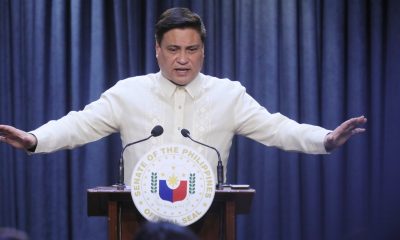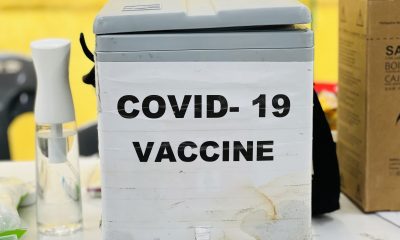Headline
Castes, patriarchy, rebels and sheer size complicate India’s life as world’s largest democracy
NEW DELHI – In a country where men have long told their wives whom to vote for, Sheila Kumar says she has no intention of letting her husband dictate her vote in next month’s national election.
“Never again,” Kumar said as she waited to collect a bucket of drinking water from the communal tap in a south Delhi slum.
She sounds every bit the modern Indian woman, a reflection of a country with many of the outward signs of modernity: the glitzy shopping malls, the tech-savvy billionaires and the burgeoning focus on women’s rights.
But it’s not so simple. Because even if she won’t allow her husband to choose her candidate, there is someone else who gets that power.
“The caste elders will decide who we should vote for,” said Kumar, 43, a member of the small, midlevel Kurmi caste. “We will vote for someone from our own caste. Why should we support anyone else?”
As the world’s largest democracy heads to the polls starting Monday, India’s often baffling contradictions are on full display, with age-old traditions of caste loyalty, patriarchy and nepotism often clashing with the values of a modern world.
But even though democracy is far from perfect here, it still lurches forward. Elections in India are generally considered free and fair, and even the powerful often fall to defeat at the hands of voters.
A strong constitution, hammered out by political leaders who were veterans of India’s struggle for independence from British colonial rule, laid the foundations for the democratic process. The politically independent Election Commission, empowered by the constitution, has the last word on political wrangles.
“Politicians know that they are accountable to their electorate. If people have voted them into office, they can just as easily toss them out in the next election,” said Ajoy Bose, a political commentator in New Delhi.
Still, the challenges are rife. Voting patterns are heavily influenced by caste, the complex social ladder that mobilizes entire communities. Although India’s constitution and laws forbid discrimination on the basis of caste, the social division continues to dominate electoral politics. The former “untouchables,” or Dalits, are a powerful vote bank and political parties make all manner of promises to woo them.
Women’s votes are often dictated by the men in the household, although that appears to be changing somewhat with growing literacy and as more women get jobs. But family and community elders still hold enormous sway. Corruption, a longtime scourge in India, is impossible to ignore. And many Indians say the lack of election primaries prevents voters from ushering out the old guard.
Apart from caste and social inequalities, the lack of development in much of India also poses challenges.
In a large swath cutting across the vast hinterland of the Indian subcontinent, rebels inspired by Chinese revolutionary leader Mao Zedong have called for a boycott of the polls. The armed guerrillas always threaten to disrupt national elections; this year is no different.
The rebels are active in 20 of India’s 28 states, from Bihar in the east through central India, to the borders of the southernmost states of Kerala and Tamil Nadu. The rebels demand a greater share of wealth from the area’s natural resources and more jobs for farmers and the poor.
Nearly 10,000 people have been killed in rebel ambushes and gunbattles between police and rebels since 1979. Security, already tight in rebel areas, will be reinforced with even more troops to protect voters and electoral staff.
Similar boycotts are also expected in the violence-wracked northern state of Kashmir, where separatist groups have called on people to shun the elections. In the last parliamentary election in 2009, 40 per cent of Kashmir’s eligible voters turned out despite rebels’ calls for boycotts and strikes.
Separately, in India’s remote but restive northeastern states bordering China, a host of separatist groups warring against the Indian state for decades pose yet another obstacle.
The massive size of the electorate is its own unique challenge.
The Election Commission has counted 815 million eligible voters. The increase in the number of eligible voters since 2009 elections is more than 100 million, or close to the population of the Philippines.
Many Indian states are so huge that elections have to be conducted in several phases to enable security forces to be moved around. In two states, elections will be held on six polling dates given their size and histories of violence.
One of these is Uttar Pradesh, India’s largest state. Its population of 200 million almost matches that of Brazil. Had it been a separate nation, Uttar Pradesh would count as the world’s sixth most populous country.
The other six-election-day state is neighbouring Bihar, where polls have often been rocked by violence and “booth capturing,” in which armed supporters of candidates have stormed polling booths and stuffed ballot boxes.
In all, around 3 million paramilitary troops and police will be deployed to maintain law and order during the polls, officials said.
“The unique thing about Indian elections is that huge numbers of people are voting,” said Bose, the political commentator. “And it’s the poorest who will make it a point to go out and vote. For this one time, people feel a sense of power. They feel they are relevant.”






















